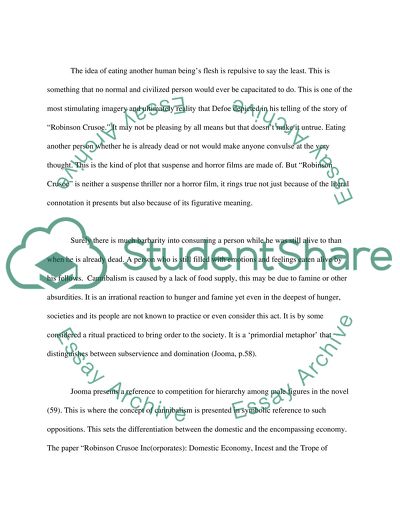Cite this document
(“Robinson Crusoe (Close reading) REBIRTH AND DELIVERANCE Research Paper”, n.d.)
Retrieved from https://studentshare.org/miscellaneous/1553385-robinson-crusoe-close-reading-rebirth-and-deliverance
Retrieved from https://studentshare.org/miscellaneous/1553385-robinson-crusoe-close-reading-rebirth-and-deliverance
(Robinson Crusoe (Close Reading) REBIRTH AND DELIVERANCE Research Paper)
https://studentshare.org/miscellaneous/1553385-robinson-crusoe-close-reading-rebirth-and-deliverance.
https://studentshare.org/miscellaneous/1553385-robinson-crusoe-close-reading-rebirth-and-deliverance.
“Robinson Crusoe (Close Reading) REBIRTH AND DELIVERANCE Research Paper”, n.d. https://studentshare.org/miscellaneous/1553385-robinson-crusoe-close-reading-rebirth-and-deliverance.


